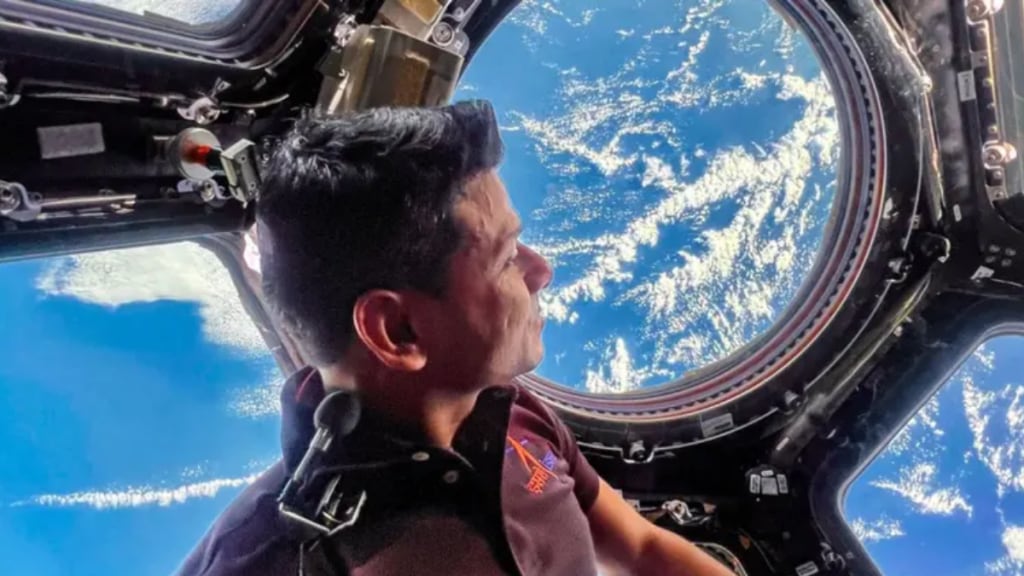Group Captain Shubhanshu Shukla’s awe-inspiring words about Earth from space have found their way into the hearts of young learners across India. The first Indian to reach the International Space Station (ISS), Shukla is now featured in the newly released NCERT Class 5 Environmental Studies textbook “Our Wondrous World”, under the chapter “Earth, Our Shared Home.” His quote, “The Earth looks completely one; no border is visible from outside,” is a poignant reminder of humanity’s shared existence on a single planet.
Shukla, who completed an 18-day mission aboard the ISS on July 15, described how Earth appeared to him from space: “It seems that no border exists, no state exists, no countries exist. We all are part of humanity, and the Earth is our one home, and all of us are in it.” The quote was part of his conversation with Prime Minister Narendra Modi and now aims to inspire young minds to think beyond boundaries and embrace unity.
A New Age of Integrated Learning Under NEP 2020
The Class 5 textbook is part of the The World Around Us (TWAU) series and represents a significant shift in pedagogy under the National Education Policy (NEP) 2020. It merges Science, Social Science, and Environmental Studies into a single, story-driven narrative that encourages observation, inquiry, and ethical thinking.
Students journey through topics such as DIGIPIN—a new digital address system—and explore the Godavari River, learning about the Brahmagiri Hills, Coringa Wildlife Sanctuary, and the Namami Gange initiative. The book also teaches essential life skills like flood safety, and introduces students to microbes and food preservation techniques such as drying, pickling, and refrigeration.
From Bhagat Singh to Bhut Jolokia: A Cultural and Environmental Tour
The textbook celebrates India’s cultural richness and natural diversity. In chapters like Our Vibrant Country, students decode national symbols, explore regional dresses, and learn about monuments and traditional dances. Another chapter, Some Unique Places, takes readers to the Sundarbans, Majuli Island, Hiware Bazar, and more—highlighting eco-friendly practices and local innovations.
With interactive elements like journal writing, model-making, and interviews, the book promotes inquiry-led learning and emphasizes the interdependence between humans and nature.

